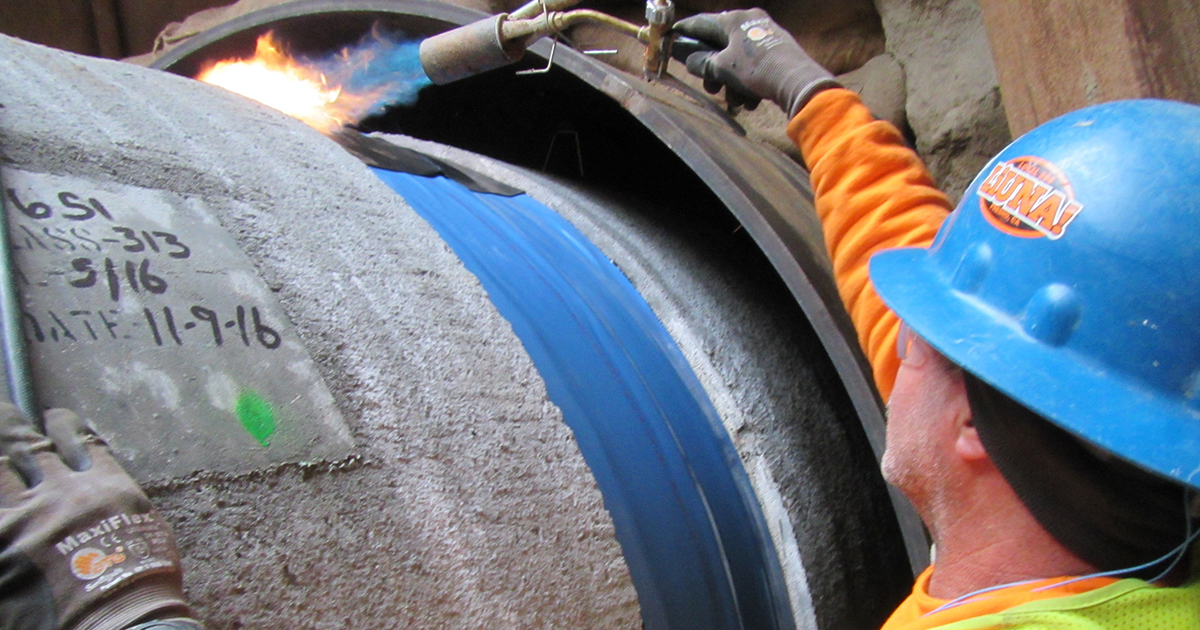
12 Oct Building Resiliency Beyond
the Infrastructure
 Reflecting on time spent the first week of October in Chicago at WEFTEC, Water Environment Federation’s annual water quality technical conference and exhibition, key themes emerging from conversations on the exhibit hall floor and during sessions were: aging infrastructure, sustainability, climate change and more. As the largest conference of its kind, bringing together over 15,000 participants from around the world, it is no surprise that these themes are all top of mind for utility managers, operations personnel, financial analysts, consultants and communications officers responsible for providing critical services to their communities. And central to all of these issues was a discussion of resiliency. What does it take to be resilient? What are the core ingredients for building resiliency?
Reflecting on time spent the first week of October in Chicago at WEFTEC, Water Environment Federation’s annual water quality technical conference and exhibition, key themes emerging from conversations on the exhibit hall floor and during sessions were: aging infrastructure, sustainability, climate change and more. As the largest conference of its kind, bringing together over 15,000 participants from around the world, it is no surprise that these themes are all top of mind for utility managers, operations personnel, financial analysts, consultants and communications officers responsible for providing critical services to their communities. And central to all of these issues was a discussion of resiliency. What does it take to be resilient? What are the core ingredients for building resiliency?
Certainly resiliency has been tested in the wake of several natural disasters across the country from flooding and hurricanes in the south and Puerto Rico, to earthquakes in Mexico, and wildfires in California and the west. Each event has highlighted how essential water and wastewater systems are to our everyday lives and the severe consequences when these systems are in disrepair and cannot function properly. Unfortunately, public focus is tuned to problems in the wake of disasters, but gaining interest in the importance of building resiliency, and all that it entails, is much more challenging in “normal” times when systems are functioning well, out of sight and out of mind. The reality is, most Americans take water, and the systems that bring it to and from homes and businesses, for granted. They turn on the tap, flush the toilet, and don’t think twice about where the water came from or where it goes.
The truth is, however, that ensuring this reliability and building resiliency requires upgrading existing and building new water and wastewater infrastructure, upgrading systems and technology, training a new generation of operators and workers, maximizing economic benefits of infrastructure, protecting vulnerable communities, and ensuring access to clean water for all. The great news is that many utilities are investing in all of these areas. However, an important – and often undervalued – ingredient is the commitment required to bring customers into the infrastructure and investment conversation, helping them understand the infrastructure needs in their communities, and ultimately building public support for those investments. It is safe to say that most people would prefer their water rates do not go up, especially since many consumers have embraced an improved water ethic of using less water, but are asked to support higher water rates.
Sometimes we are so enchanted by the shiny new pipes or latest technological innovations that it is easy to forget that people are the center of resiliency.
As such, it is imperative that conversations and engagement go on at all times with your ratepayers so when there is a needed ask of your “investors,” there is a better understanding and appreciation of the need and a greater likelihood of support.
The next truth is that there is a monumental financial investment required across the nation to address aging infrastructure and build resilience. These investments, also known as rate increases, will not happen without informed consumers and supportive opinion leaders and stakeholders who will foot the bill. Knowing that—today we at Katz & Associates are joining nearly 700 organizations across the country who are coming together for Imagine a Day Without Water—national day of education and awareness about the importance of our water and wastewater systems and how they connect to the daily lives of all Americans. We are proud to join forces with our partners and clients, both engineering firms and water and wastewater utilities, to highlight the connection between needs and solutions. As consultants helping our clients communicate about things that matter, we hope others will join and use this day of action to start a conversation with your networks about the essential role water and wastewater systems play in our daily lives, in our economy, and in our ability to be resilient in the face of climate change and natural disasters.
Katz & Associates is committed to helping communicate the important work our clients are doing, so customers can imagine a day without water, but never have to experience it.
